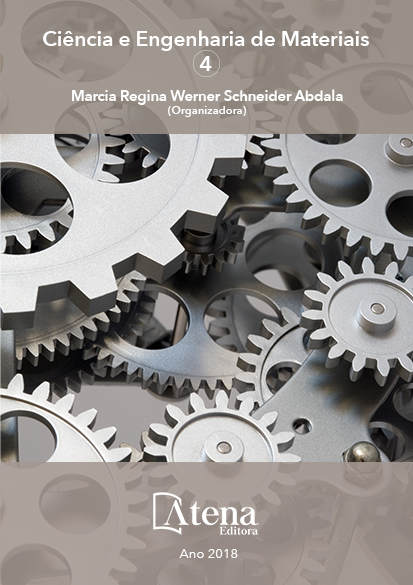
COMPATIBILIZAÇÃO E EFEITO DA DEGRADAÇÃO TERMO-HIDROLÍTICA EM BLENDAS PS/PCL
Blendas de poliestireno (PS)/poli
(ɛ-caprolactona) (PCL) foram compatibilizadas
com o copolímero SEBS-g-MA por
processamento convencional, extrusão e
injeção. A adição do compatibilizante teve como
objetivo melhorar as propriedades mecânicas,
uma vez que o compatibilizante melhora a
interação entre a matriz PS e a fase dispersa
de PCL. Neste trabalho, avaliou-se o efeito da
degradação termo-hidrolítica das misturas PS
e PS/PCL/SEBS-g-MA por meio de um teste
que foi conduzido em um banho de imersão a
uma temperatura de aproximadamente 50ºC
por 15 dias. Antes e após o teste, as amostras
foram caracterizadas por: propriedades
mecânicas de tração e resistência ao impacto,
Termogravimetria (TG), Calorimetria Exploratória
Diferencial (DSC), Microscopia Eletrônica de
Varredura (MEV) e Microscopia Eletrônica
de Transmissão (MET). De acordo com os
ensaios mecânicos de tração, observou-se uma
evidente melhoria nas propriedades da mistura
compatibilizada e um aumento significativo da
resistência ao impacto. A morfologia da blenda
compatibilizada apresentou uma superfície mais
homogênea e rugosa com aspectos de fratura
dúctil. A microestrutura obtida por análise de
MET da mistura compatibilizada ilustrou que
a fase dispersa do PCL apresentou domínios
da ordem de 1 μm e com maior dispersão.
Com relação à análise das propriedades, após
o teste de degradação termo-hidrolítica, foi
possível concluir que, apesar do curto tempo de
imersão, as propriedades mecânicas e térmicas
das misturas PS puro e PS/PCL/SEBS-g-MA
foram alteradas.
COMPATIBILIZAÇÃO E EFEITO DA DEGRADAÇÃO TERMO-HIDROLÍTICA EM BLENDAS PS/PCL
-
DOI: Atena
-
Palavras-chave: blendas, poliestireno, poli(ɛ-caprolactona), compatibilização, degradação termo-hidrolítica.
-
Keywords: blends, polystyrene, poly (ɛ-caprolactone), compatibility, water absorption.
-
Abstract:
Polystyrene (PS)/poly (ɛ-caprolactone) (PCL) blends were compatibilized
with the SEBS-g-MA copolymer by conventional processing, extrusion and injection.
The addition of the compatibilizer had as objective to improve the mechanical
properties, once the compatibilizer improves the interaction between the PS matrix and
PCL dispersed phase. In this work, the effect of the thermal and hydrolytic degradation
of the PS and the PS/PCL/ SEBS-g-MA blends was evaluated through a test that was
conducted in a thermal immersion bath at a temperature of approximately 50ºC for 15
days. Before and after test, the samples were characterized by: mechanical properties
and impact strength, Thermogravimetry (TG), Differential Scanning Calorimetry
(DSC), Scanning Electron Microscopy (SEM) and Transmission Electron Microscopy
(MET). According to the mechanical properties, became evident improvement in the
properties of the compatibilized blend and a significant increase in the impact strength.
The morphology of compatibilized blend presented a more homogeneous and rough
surface with aspects of a ductile fracture. The MET morphology of the compatibilized
blend showed that the PCL dispersed phase presented domains on the order of 1 μm
and higher dispersion. In relation to analysis of the properties after the degradation test
it was possible to conclude that despite the short immersion time, the mechanical and
thermal properties of the PS matrix and PS/PCL/SEBS-g-MA blends were altered.
-
Número de páginas: 15
- Danilo Diniz Siqueira
- Dayanne Diniz de Souza Morais
- Rodholfo da Silva Barbosa Ferreira
- Edcleide Maria Araújo
- Danielly Campos França
- Elieber Barros Barbosa
- Amanda Dantas Oliveira


